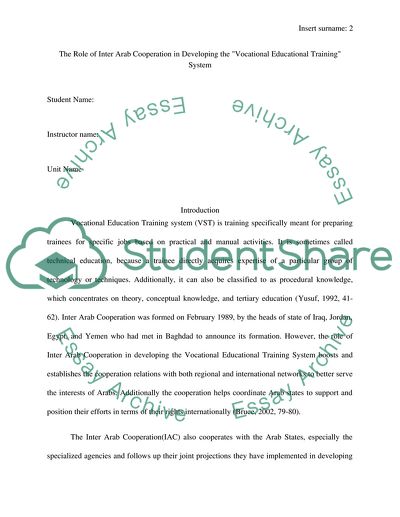Cite this document
(Developing the Vocational Educational Training System Research Paper, n.d.)
Developing the Vocational Educational Training System Research Paper. Retrieved from https://studentshare.org/education/1759115-the-role-of-inter-arab-cooperation-in-developing-the-vocational-educational-training-system
Developing the Vocational Educational Training System Research Paper. Retrieved from https://studentshare.org/education/1759115-the-role-of-inter-arab-cooperation-in-developing-the-vocational-educational-training-system
(Developing the Vocational Educational Training System Research Paper)
Developing the Vocational Educational Training System Research Paper. https://studentshare.org/education/1759115-the-role-of-inter-arab-cooperation-in-developing-the-vocational-educational-training-system.
Developing the Vocational Educational Training System Research Paper. https://studentshare.org/education/1759115-the-role-of-inter-arab-cooperation-in-developing-the-vocational-educational-training-system.
“Developing the Vocational Educational Training System Research Paper”, n.d. https://studentshare.org/education/1759115-the-role-of-inter-arab-cooperation-in-developing-the-vocational-educational-training-system.


